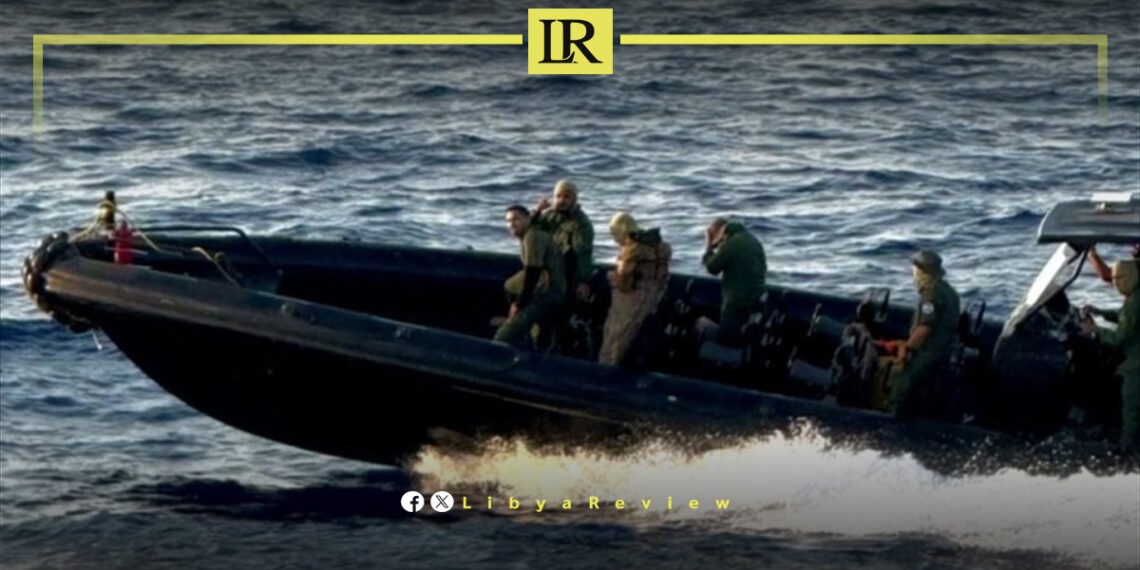An Italian humanitarian organization has accused militias allied with the Libyan Government of National Unity (GNU), headed by Abdulhamid Dbaiba, of running human trafficking operations across the central Mediterranean, submitting photo and video evidence to prosecutors in Sicily and to the International Criminal Court (ICC).
Mediterranea Saving Humans, which operates rescue ships in the Mediterranean, said its investigation shows armed Libyan groups violently expelling migrants at sea and threatening humanitarian crews. The NGO said that “this time there is undeniable video evidence,” including footage of armed men in military uniforms throwing migrants – some of them children – into the water near the group’s rescue ship in August.
According to Mediterranea, the armed men were identified as members of Battalion 80 for Special Operations, linked to the 111th Brigade under Deputy Defense Minister Abd al-Salam al-Zoubi. Survivors reported they had been held in Libyan detention camps before being forced onto boats. Some migrants who resisted orders were allegedly killed.
The evidence was delivered to prosecutors in Trapani and formally included in an ongoing ICC investigation into crimes against migrants in Libya. Mediterranea also reported that up to eight Libyan patrol boats harassed its ship, some bearing markings of the General Administration for Coastal Security (GACS), an entity repeatedly accused of violent interceptions that have ended in deaths. The NGO said the boats blocked its route, issued threats over radio, and falsely claimed the vessel was inside Libyan waters, even though it was more than 20 miles offshore.
The revelations triggered sharp reactions in Italy. Green Party leader Angelo Bonelli accused Prime Minister Giorgia Meloni’s government of “funding traffickers,” while Democratic Party officials demanded an end to Italy’s security deals with Libya. Critics warned that unless canceled by November 2025, the Italy–Libya migration agreement will automatically renew in February 2026, locking Rome into cooperation with forces accused of human rights abuses.
Libya remains a main departure point for migrants heading to Europe. The International Organization for Migration estimates more than 867,000 migrants currently live in Libya, where many face detention, extortion, and violence before attempting the perilous sea crossing.


